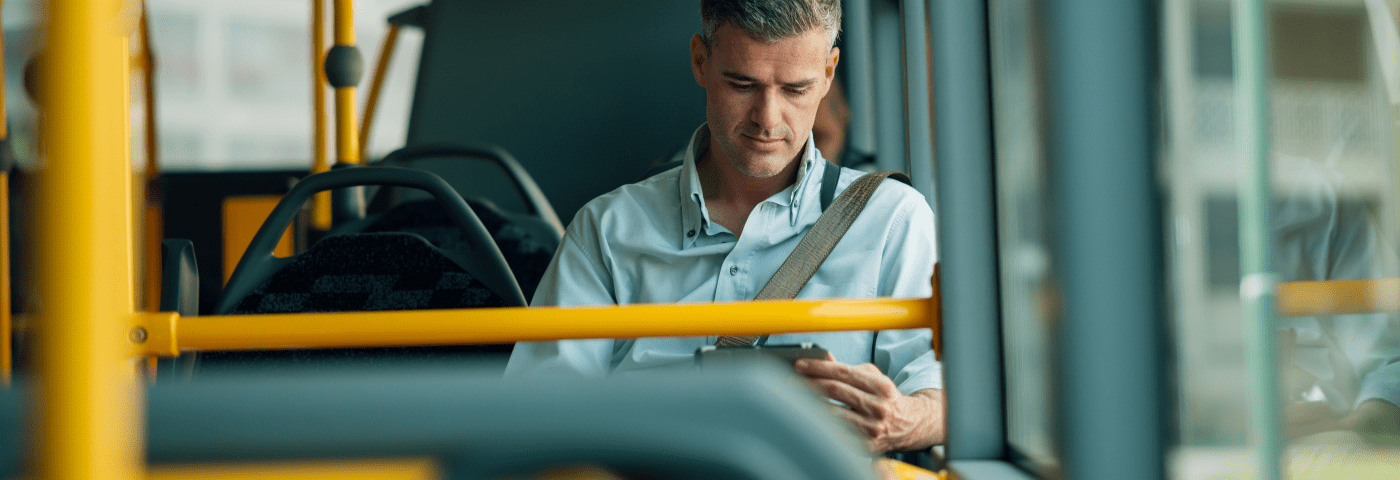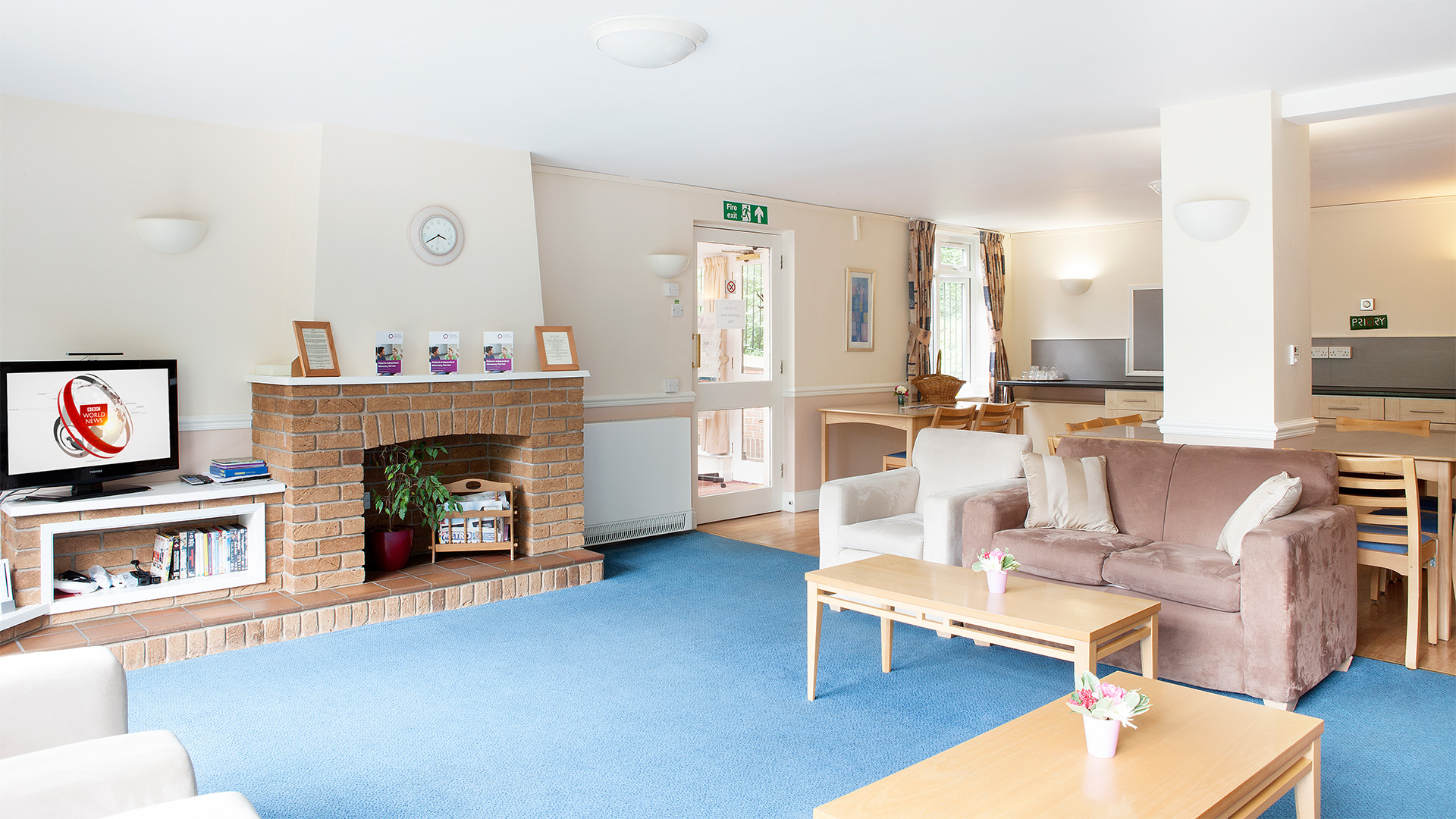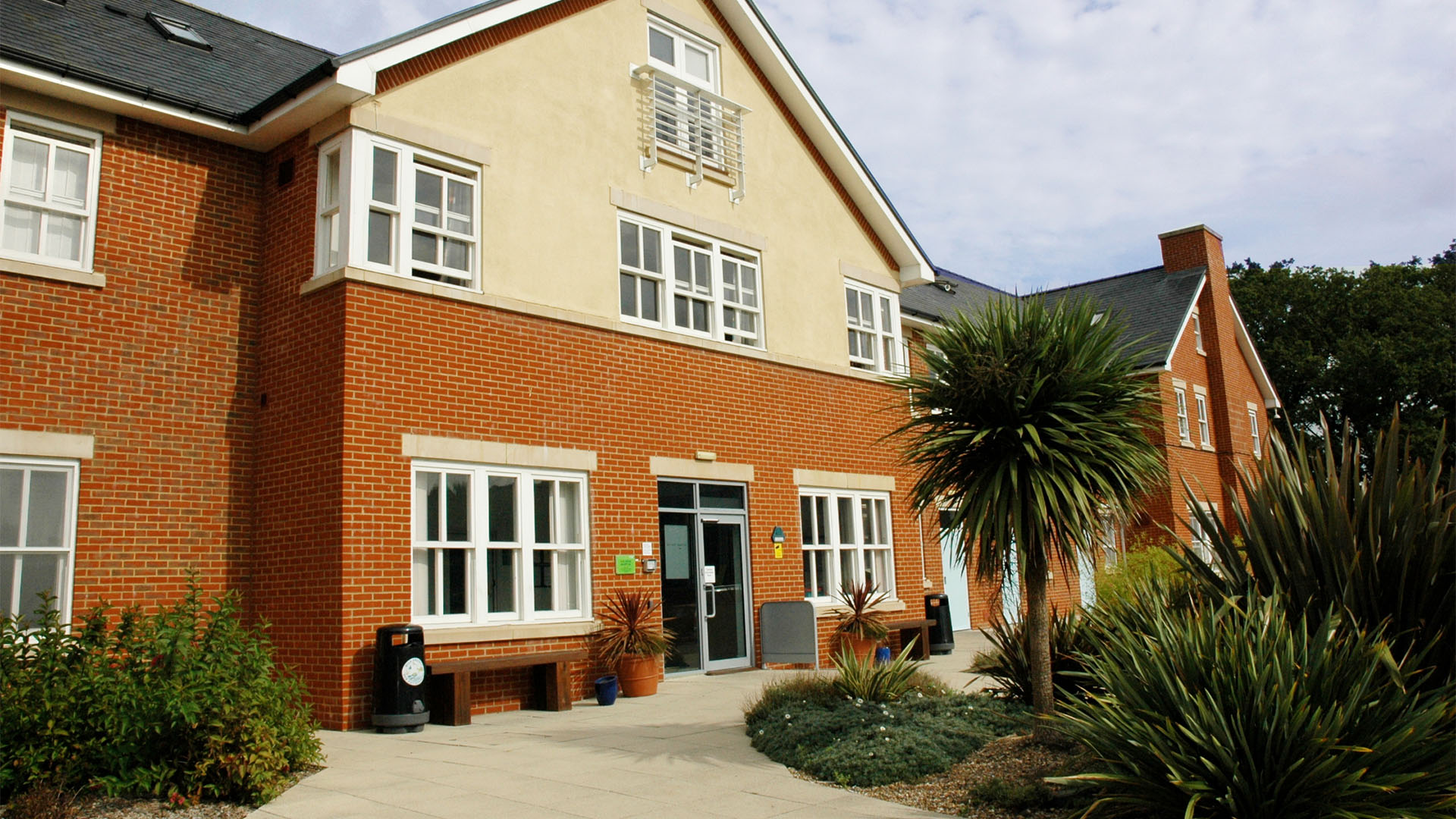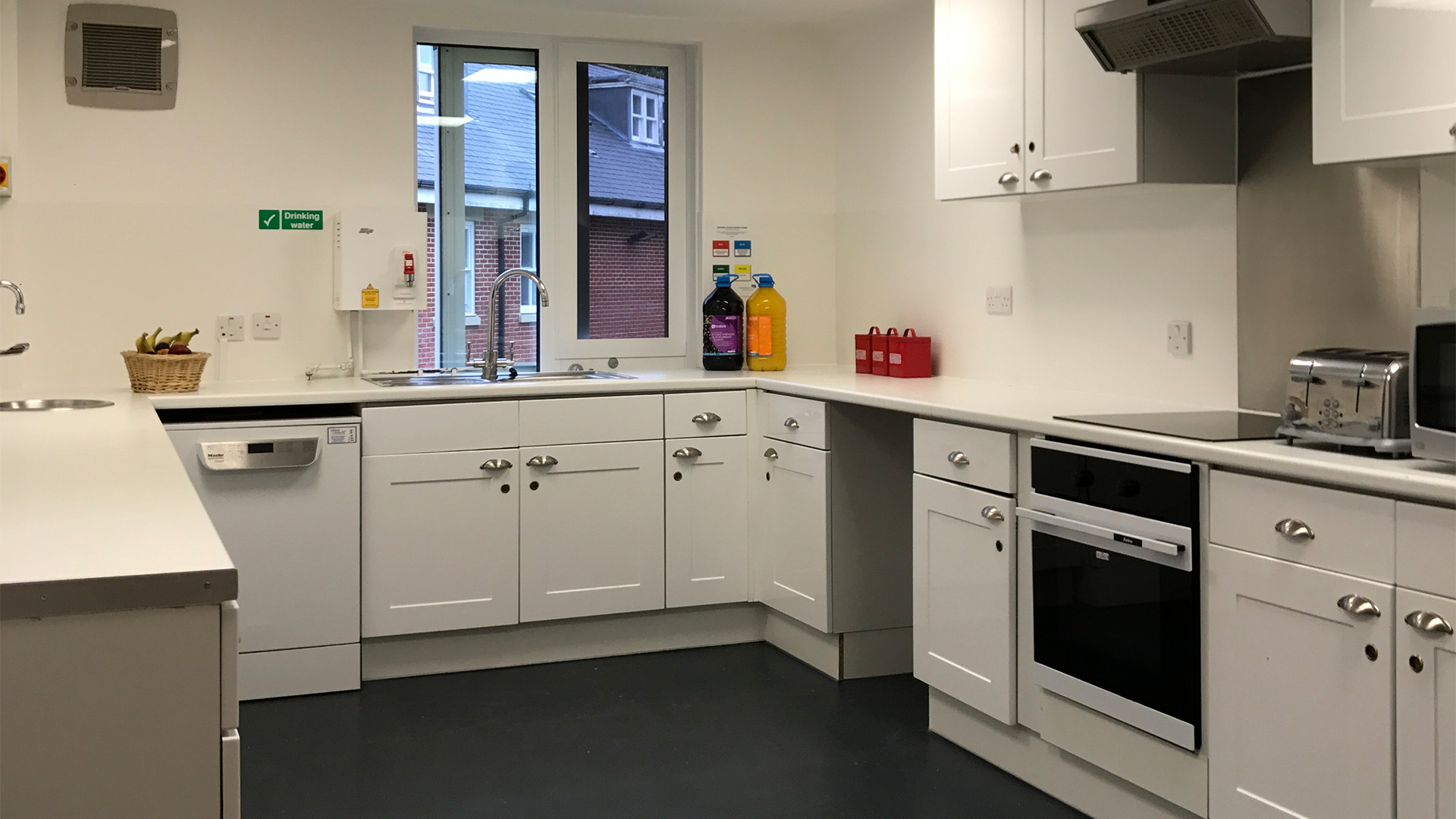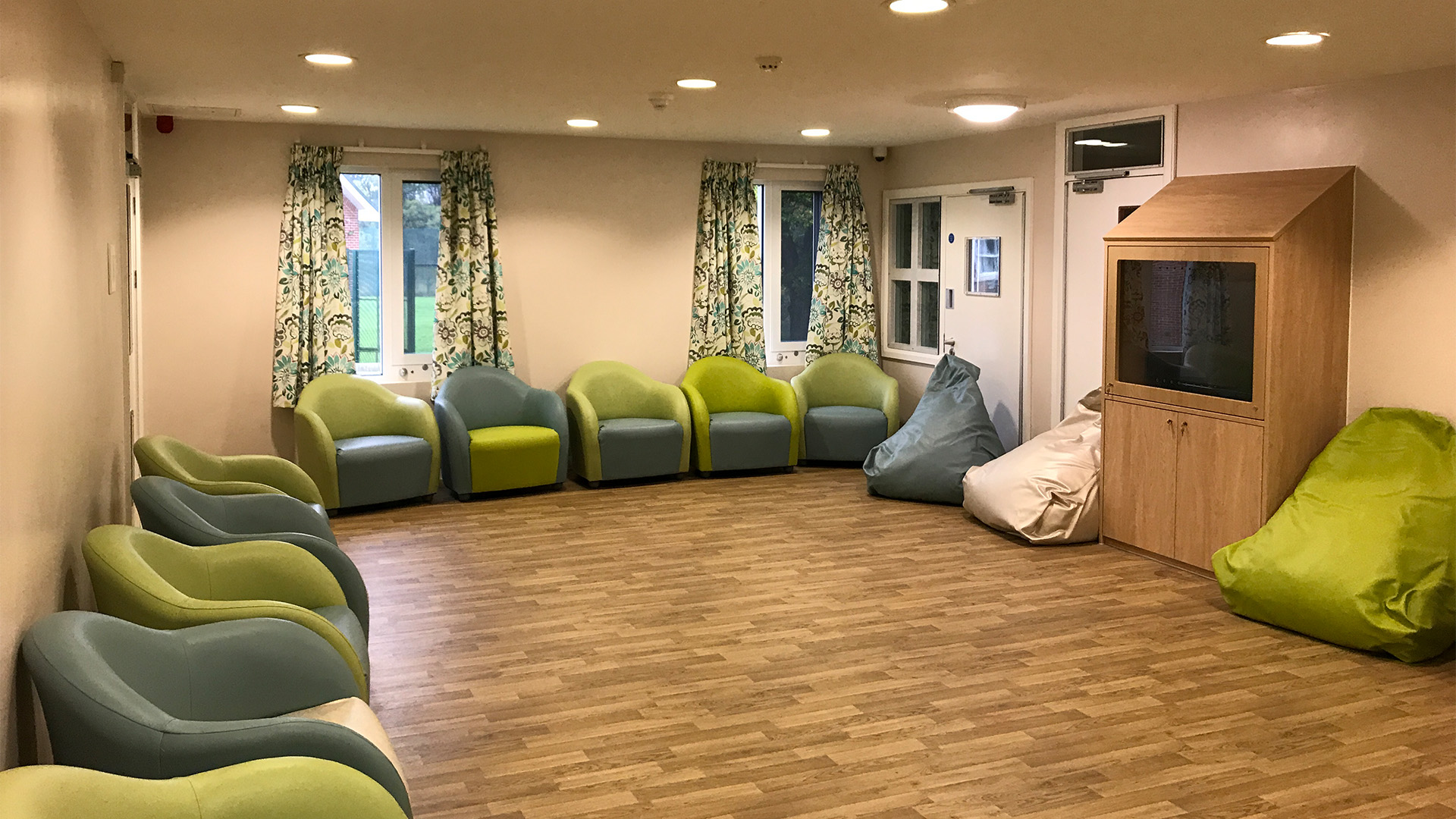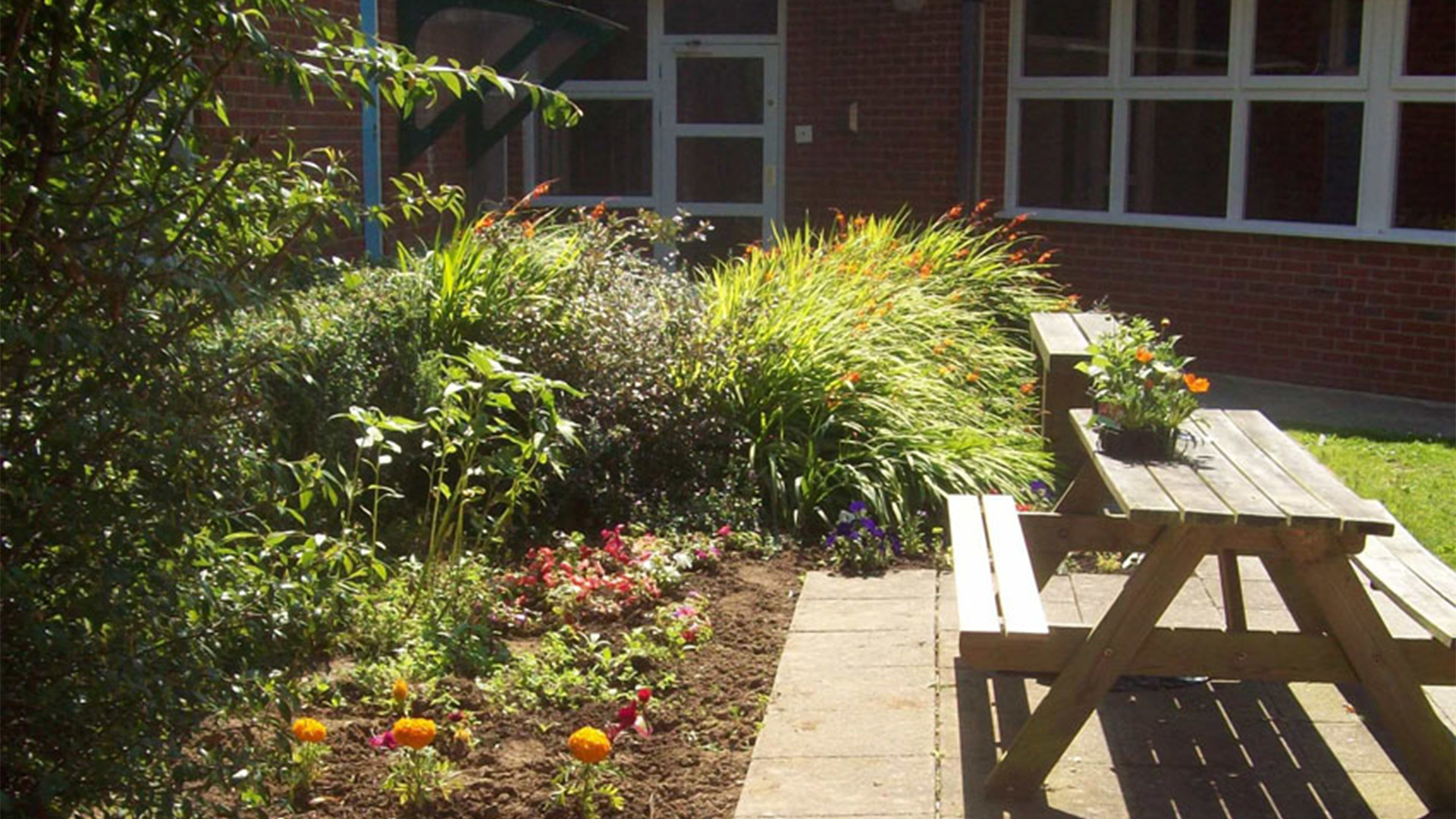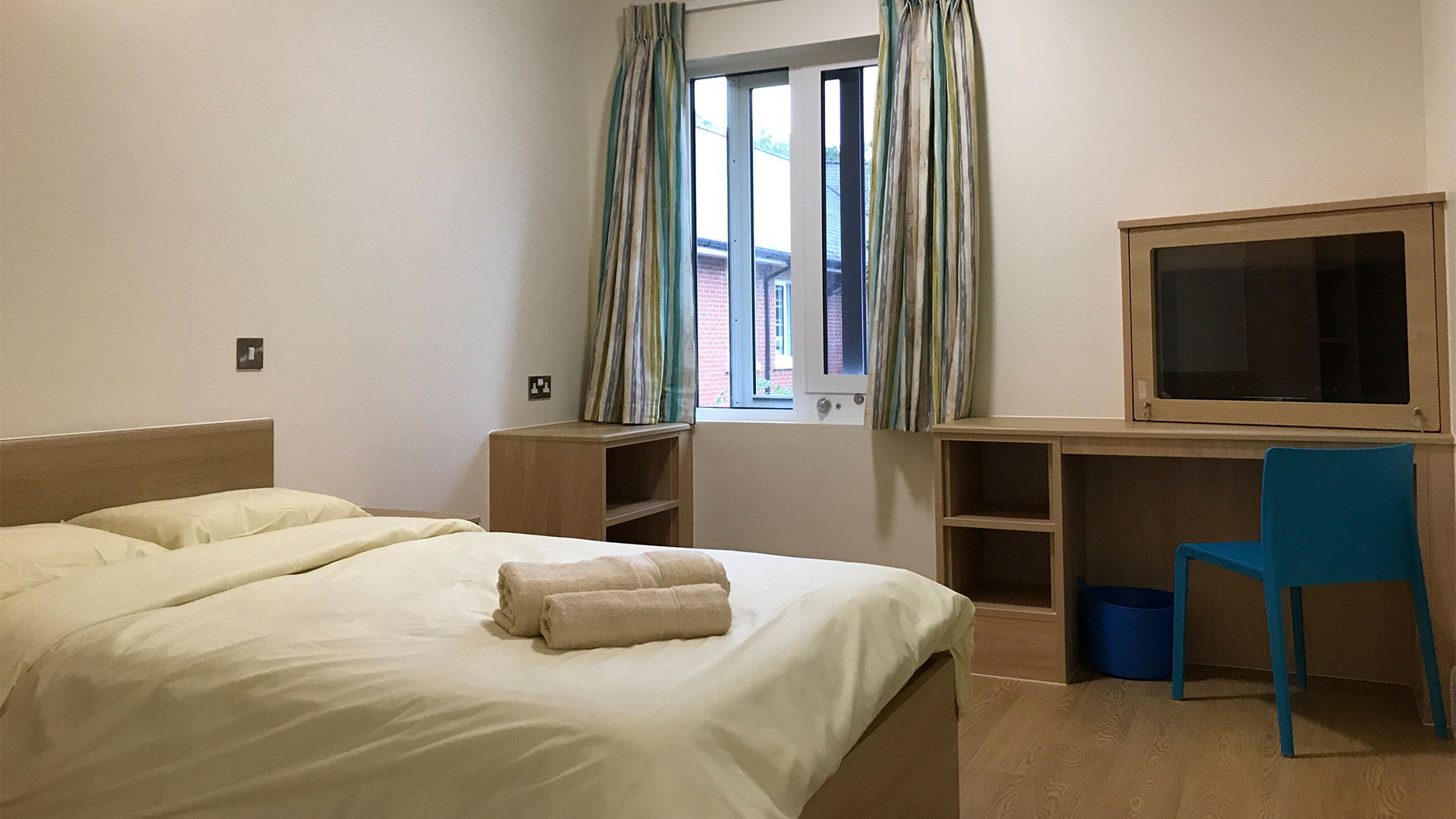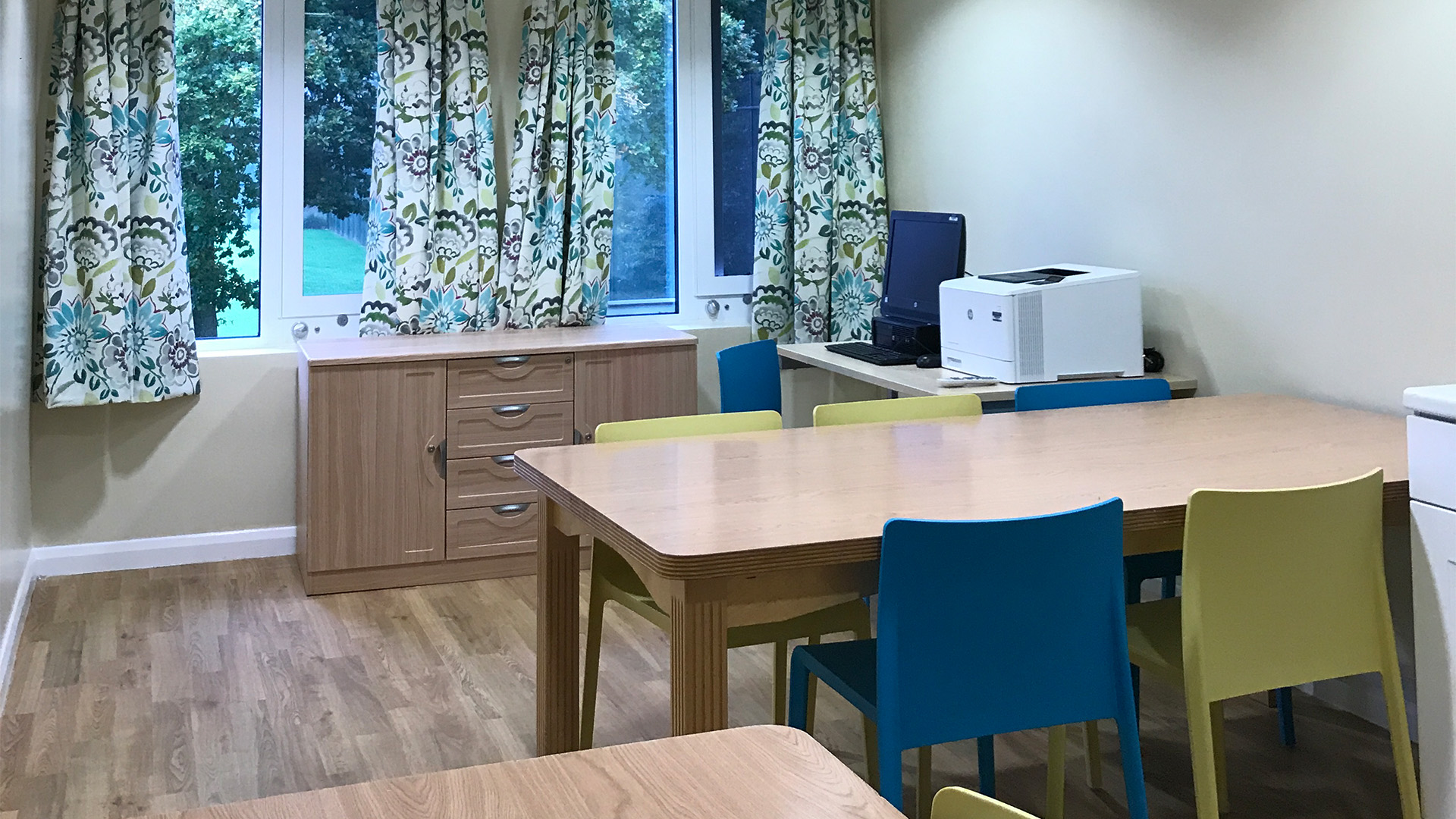About this location
Set in attractive grounds in a rural setting, on the edge of the South Downs National Park, Priory Hospital Burgess Hill is a purpose-built building with good links to the local community. We offer acute mental health support for adult males, as well as psychiatric intensive care unit (PICU) support for adult males.
Priory’s acute and PICU services aim to allow more people to be treated closer to home and we support the NHS to repatriate out-of-area patients back to local areas.
Services at a glance
Contact us
Click here to enable this content
Services
Our acute services offer round-the-clock assistance in times of emergencies. Our specialist inpatient acute teams are committed to providing the highest quality of care, supporting patients with a wide range of mental health conditions in safe and highly therapeutic environments.
Ward break down
- Venus ward - 16-bedded ward for adult males
Conditions treated
We are able to support people with complex mental health needs, including:
- Personality disorders
- Depression
- Anxiety
- Bipolar disorder
- Psychosis
- Self-harm
- Schizophrenia
We can support autistic people and people with a learning disability, provided these people don’t need a specialised environment, and it is not the primary diagnosis
We can also support people with the following challenges:
- Physical disabilities (depending on severity)
- Substance misuse
- Violence and aggression
We are able to support informal patients or those detained under the Mental Health Act (MHA).
Treatment approaches
At Burgess Hill, we offer an individualised, person-centred approach to all of our patients.
People are often admitted to acute wards from general hospitals, where they have been identified as needing intensive support while they are in an acute phase of being unwell. People staying with us can also be referred from high dependency units, where they can no longer be managed on a rehabilitation ward due to a change in their presentation.
Our aim is to work towards discharge for those staying with us, at an early stage, to ensure they receive intensive and effective support that will enable them to get back to living their life.
Our assessment and treatment options are overseen by a full and diverse multidisciplinary team (MDT).
We offer:
- Occupational therapy (OT)
- 1:1 support
- Psychology
- A range of creative therapies, i.e. music therapy, physiotherapy, arts & crafts
- Cooking groups and independent living skills groups
People within our acute service tend to stay with us on a short-term basis.
Our team
- Hospital director
- Director of clinical services
- Ward managers
- Responsible consultant (psychiatrist)
- Deputy ward managers
- Senior nurses
- Occupational therapist
- OT assistant
- Healthcare assistants
- Psychologist
- Specialty doctor
- Physical health nurse
- Experts by experience (former patients involved in feedback and advocacy)
- Advocacy
Therapeutic and community-based activities
We offer a range of therapeutic and community-based activities as part of a full treatment programme. We want to support people to become more confident and independent, preparing them to move through their treatment pathway towards community living.
Our therapeutic and community-based activities include:
- Gardening (mini allotment/raised beds)
- OT cooking sessions
- Physical health and weight management sessions
- Physiotherapy sessions
- Pet therapy
- Outdoor walks/nature walks
- IT and computer access
- Exercise sessions/personal training
- Access to swimming sessions
- Yoga
- Tennis
- Football
- Basketball
Our facilities and environment
Our garden offers secure fencing, a patio area with furniture, a lawn, sensory items, indoor football pitch, planting areas, a tennis/basketball court and an allotment.
Our bedrooms
Exclusion profile
Pathways
Priory’s network of high quality facilities enables us to offer joined-up care pathways with our dedicated residential services. We offer programmes which integrate healthcare treatment and therapy, which are tailored according to individual needs, in an appropriate setting. Our strength is that we can provide a seamless transition for the individual as they progress between higher and lower dependency services.
People staying with us may step down into a Priory Adult Care site if they are unable to return home to the community. However, due to the fact that we take people locally and out of area, we would look at where would be the most appropriate place to support them. We would then work with our internal team and commissioners to find the right ongoing placement.
Our PICU services have been designed to support people in a severe phase of illness, who cannot be managed in acute services. Our dedicated PICU services place us at the forefront of specialised intensive care, and our highly trained teams can support people with complex needs and behaviours that challenge, along with co-existing issues (such as substance misuse).
Ward break down
- Jupiter ward – 10-bedded ward for males, plus a seclusion room
- Neptune ward – 10-bedded ward for males, plus a seclusion room
Conditions treated
We are able to support people with complex mental health needs, including:
- Personality disorders
- Depression
- Anxiety
- Bipolar disorder
- Psychosis
- Self-harm
- Schizophrenia
We can also support people who present with the following challenges, alongside their primary mental health diagnosis:
- A learning disability
- Physical disabilities
- Sexual offending (depending on risk)
- Substance misuse
- Violence and aggression
- Autism
We are able to support patients detained under the MHA.
Treatment approaches
At Burgess Hill, we offer an individualised, person-centred approach to all of our patients. People are often admitted to our PICU ward from a general hospital, where they have been identified as needing intensive support while they are in an acute phase of being unwell. Our PICU ward supports people in a severe phase of illness, who require a high level of psychiatric intensive care.
Our aim is to work towards discharge for people staying with us, at an early stage, to ensure they receive intensive and effective support that will enable them to get back to living their life.
Our assessment and treatment options are overseen by a full and diverse MDT. We offer:
- Occupational therapy
- 1:1 support
- Psychology
- Trauma informed therapy
People within our PICU service tend to stay with us only for as long as clinically required and until they are deemed suitable for a stepdown service.
Our team
- Hospital director
- Director of clinical services
- Ward managers
- Responsible consultant (psychiatrist)
- Deputy ward managers
- Senior nurses
- Occupational therapist
- OT assistant
- Healthcare assistants
- Psychologist
- Specialty doctor
- Physical health nurse
- Experts by experience (former patients involved in feedback and advocacy)
- Advocacy
Therapeutic and community-based activities
We offer a range of therapeutic and community-based activities as part of a full treatment programme. We want to support people to become more confident and independent, preparing them to move through their treatment pathway towards community living as soon as possible.
Our therapeutic and community-based activities include:
- Gardening (mini allotment/raised beds)
- OT cooking sessions
- Physical health and weight management sessions
- Physiotherapy sessions
- Pet therapy
- Outdoor walks/nature walks
- IT and computer access
- Exercise sessions/personal training
- Access to swimming sessions
- Yoga
- Tennis
- Football
- Basketball
Our facilities and environment
Our garden offers secure fencing, a patio area with furniture, a lawn, sensory items, indoor football pitch, planting areas, a tennis/basketball court and an allotment.
Our bedrooms
Exclusion profile
Pathways
Priory’s network of high quality facilities enables us to offer joined-up care pathways with our dedicated residential services. We offer programmes which integrate healthcare treatment and therapy, which are tailored according to individual needs, in an appropriate setting. Our strength is that we can provide a seamless transition for the individual as they progress between higher and lower dependency services.
We have an acute ward on-site and have links to Priory’s high dependency unit hospitals. Admissions can be from local or outer areas so support is offered through an appropriate Priory Adult Care pathway, should this be needed, back towards the service user’s home area.
A message from our site leader

We strive to give our patients a positive experience which is focused on their recovery. Each individual patient is offered a bespoke assessment and treatment package of care, recognising the life experience that each patient comes with on admission. Our ultimate aim is to empower the patient at every stage of their assessment and treatment journey.
Burgess Hill site leader
Comments from our patients and their family and friends
The teams here have been very supportive and I have been treated with respect throughout my stay
Information for family and friends
How do home visits work?
We will support people staying with us, where possible and appropriate, to attend home visits for transition to discharge. However, most people discharge home once they are well enough after recovery from the acute phase.
What is your visitation policy?
We have unrestricted visiting but it is by appointment only, to ensure that needs can be supported in full and to ensure a positive experience for all. We want to make families and friends feel welcome.
Will I be involved and kept up to date with my loved one’s care and wellbeing?
Yes; we make every effort to keep the loved ones of our patients involved in their care, as long as we have consent to do so.
Will my loved one be able to have a phone or call me?
People staying can have mobile phones or staff can support them to access a phone.
What type of things are families expected to provide, and what is provided by the home?
We provide all furnishings and food on-site and encourage patients to individualise their space with their own artwork, décor and soft furnishings, but no restricted, bulky or valuable items. We would expect people staying with us to bring clothes and toiletries, however, staff will support those who may arrive without essentials.
What are the bedrooms like?
All of our bedrooms are furnished, and patients are supported to personalise them to suit their needs and wishes. They are all spacious, single person, en-suite rooms.
Are external doors kept locked?
Yes, external doors are locked for the safety of people staying with us, with staff on hand to support access where needed. Every person staying with us will be individually assessed for any risks to see what security is needed.
What do service users eat and how do meal times work?
Meals are provided and we can cater for all specialist dietary needs. Families can bring in food to eat with their loved ones, but it must be consumed on the same day to avoid re-heating concerns. Patients can access snacks or prepare basic snacks in between mealtimes.
How does laundry work?
People are expected to attend to their own laundry and facilities are provided on-site. Help will be provided to those that may need it.
Is there anything they can’t bring or have?
Some items are restricted to ensure safety and wellbeing. A list can be provided and people staying with us and their families will be informed if specific items are restricted that are individual to the patient as part of their therapeutic/recovery need.
Are pets allowed?
Unfortunately, we cannot allow pets to stay on-site. However, we understand that pets are family members and we may be able to support or accommodate a visit, provided it is appropriate and achievable. The hospital enjoys extensive grounds in which to facilitate such pet visits.
How do activities work?
Everyone will be given an activities planner for one-to-one sessions and understand where facilities are and what they can access.
Do service users and families have an input into the service user’s care plans?
We encourage families to have access into their loved one’s care plans as part of ensuring maximum support for the individual and understanding their needs. This is provided once we have consent from the patient. Families are welcome to attend weekly ward rounds. In addition, the hospital hosts a virtual monthly Carers’ Forum which all are welcome to attend.
What are the car parking facilities?
There is free car parking on-site.
What is the smoking policy? Can service users buy cigarettes?
Burgess Hill is a non-smoking site. However, some service users choose to vape while out in the grounds or smoke when on leave. Support is given to those that wish to participate in smoking cessation.
How is treatment accessed and funded?
We don’t take referrals directly from individuals and families. Instead, the first step will be for you to reach out to the person’s GP so that they can be referred and funded through the correct NHS channel. Depending on the type of support needed, this could include local authority funding, NHS funding, joint funding between the local authority and NHS, or direct payments. Please note, referrals for NHS or local authority funded services must come from a referring organisation.
How to make a referral
Our customer service centre provides 24/7 support for NHS mental health enquiries and referrals. Our customer referral co-ordinators can support you from your first call right through to the enquiry conclusion, providing updates throughout the process. We offer 24/7 crisis referrals, fast access to bed availability and placements, and a single access point for end-to-end enquiry management.



















